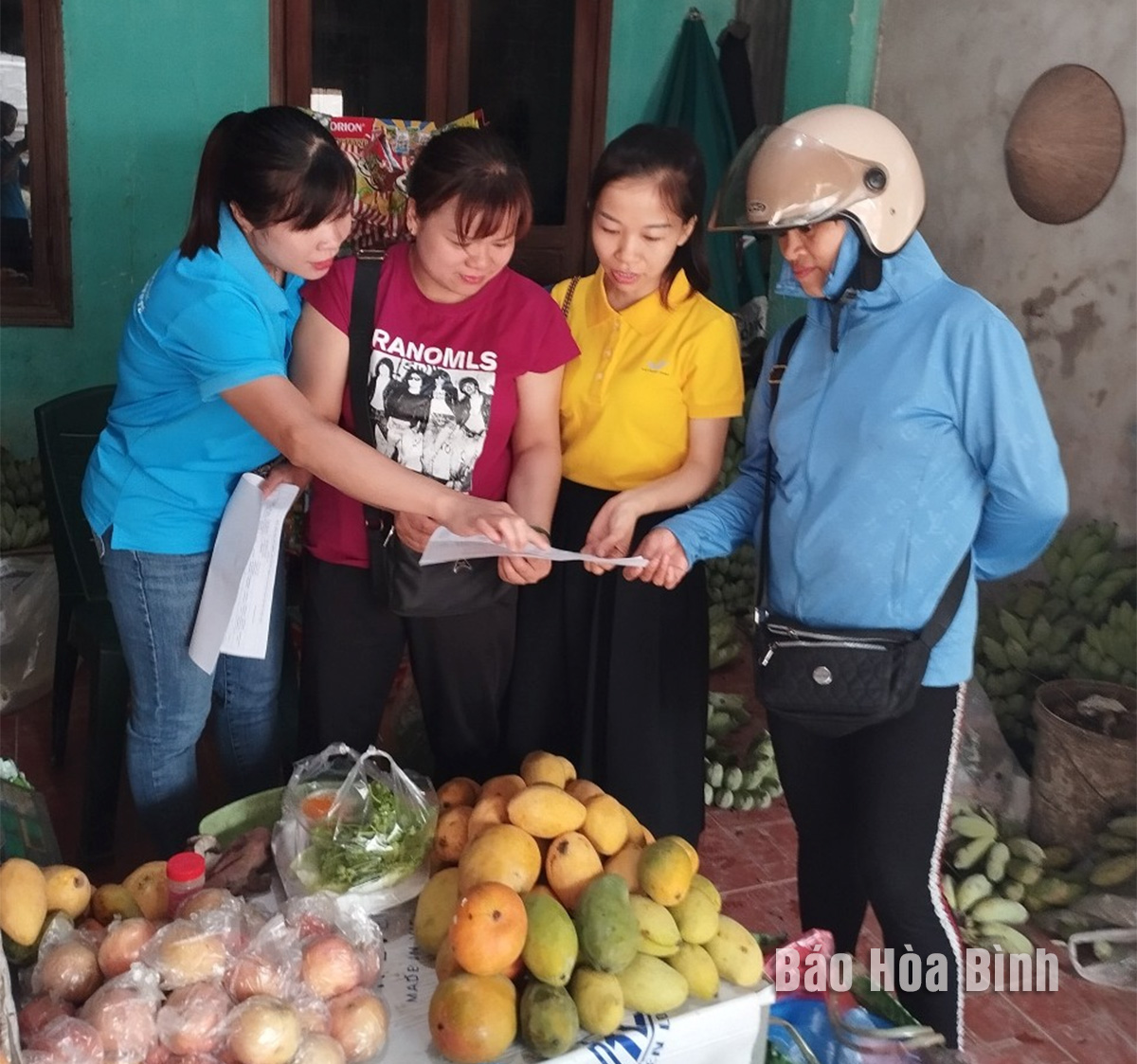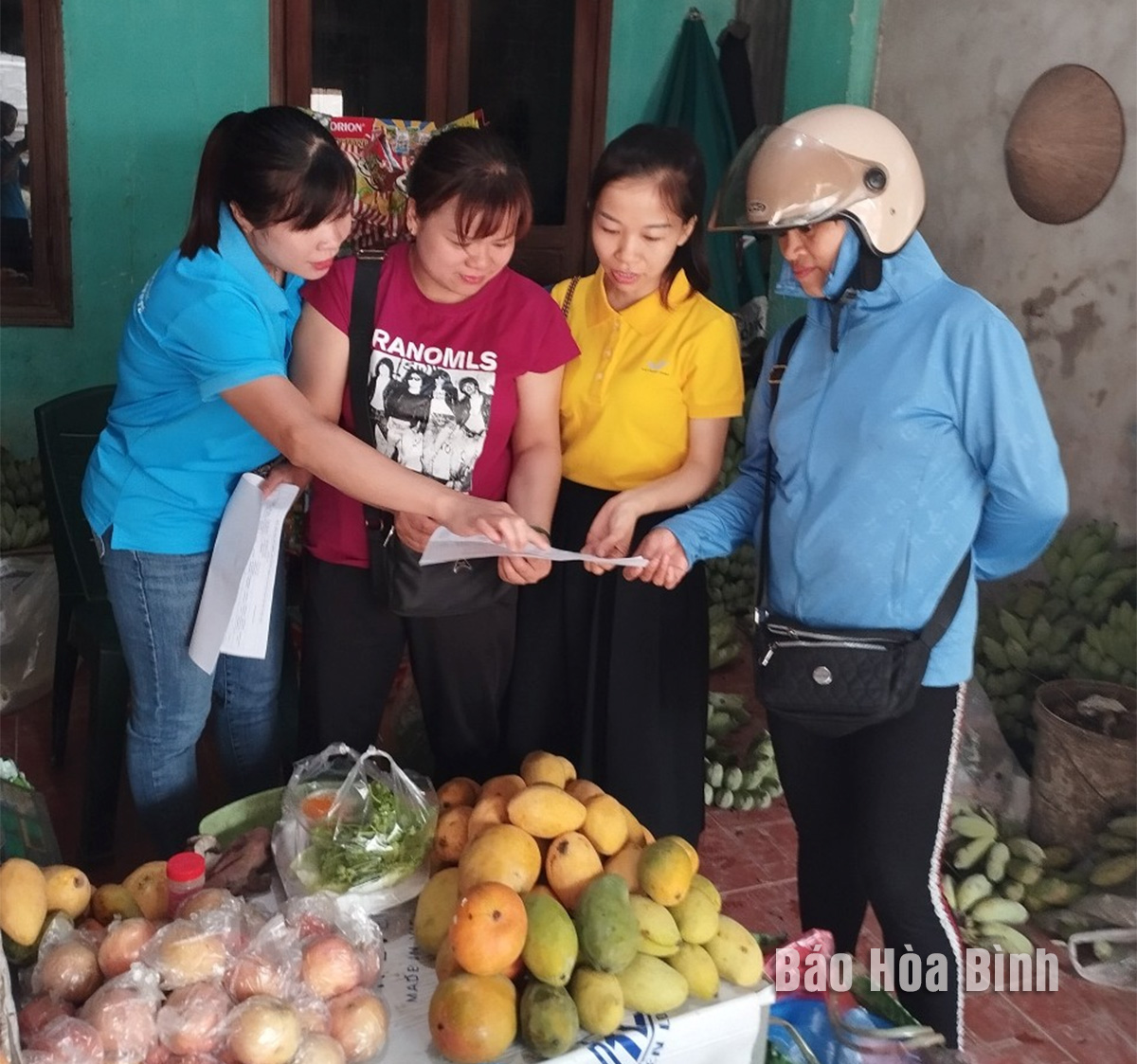
Over the years, Kim Boi district's social security sector has continuously innovated and adopted digital technology to improve its services. Marking its 30th anniversary (1995-2025), the sector has made significant strides in strengthening the social security system.
In Kim Boi, digital transformation efforts, such as the VssID app and pension payments via bank accounts, have improved service accessibility and efficiency.
The VssID app allows users to replace traditional paper health insurance cards with a digital version, providing quick access to personal insurance information, medical history, and claim procedures. By February 2025, more than 15,600 people in the district had installed the app.
Pension and social insurance benefits are also increasingly paid through personal bank accounts, reducing the need for direct cash transactions. As of early 2025, 739 pensioners and beneficiaries or 31.6% of total recipients had opted for ATM-based payments.
In addition to expanding digital services, the district social security sector has streamlined administrative procedures, reducing paperwork and improving service delivery.
By February, 5,728 people had been enrolled in social insurance, including 4,485 under mandatory schemes and 1,243 under voluntary plans. The local health insurance coverage had reached 97.09% of the population.
With digital applications and modern payment methods, the sector is committed to improving service quality, enhancing administrative transparency, and raising public awareness of the importance of social insurance in maintaining sustainable social security.
According to data from the Hoa Binh Provincial Party Committee, the industrial production index for the first six months of 2025 is estimated to have increased by 20% compared to the same period last year. This marks the highest year-on-year growth rate for this period since 2020.
In the first six months of 2025, Hoa Binh province’s export turnover was estimated at 1.145 billion USD, marking an 18.11% increase compared to the same period in 2024. Import turnover was estimated at $ 804 million, a 17.15% increase, which helped the province maintain a positive trade balance.
The lives of the ethnic minority farmers in Tan Lac district have gradually improved thanks to the new directions in agricultural production. This is a testament to the collective strength fostered through the professional associations and groups implemented by various levels of the district’s Farmers’ Union.
With the motto the "product quality comes first,” after nearly one year of establishment and operation, Muong village’s Clean Food Agricultural and Commercial Cooperative, located in Cau Hamlet, Hung Son Commune (Kim Boi district), has launched reputable, high-quality agricultural products to the market that are well-received by consumers. The products such as Muong village’s pork sausage, salt-cured chicken, and salt-cured pork hocks have gradually carved out a place in the market and they are on the path to obtaining the OCOP certification.
In the past, the phrase "bumper harvest, rock-bottom prices" was a familiar refrain for Vietnamese farmers engaged in fragmented, small-scale agriculture. But today, a new spirit is emerging across rural areas of Hoa Binh province - one of collaboration, organisation, and collective economic models that provide a stable foundation for production.
Maintaining growing area codes and packing facility codes in accordance with regulations is a mandatory requirement for agricultural products to be eligible for export. Recently, the Department of Agriculture and Environment of Hoa Binh province has intensified technical supervision of designated farming areas and packing facilities to safeguard the "green passport" that enables its products to access international markets.



